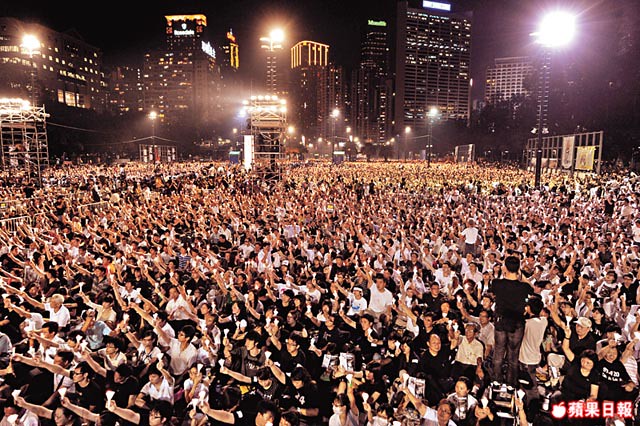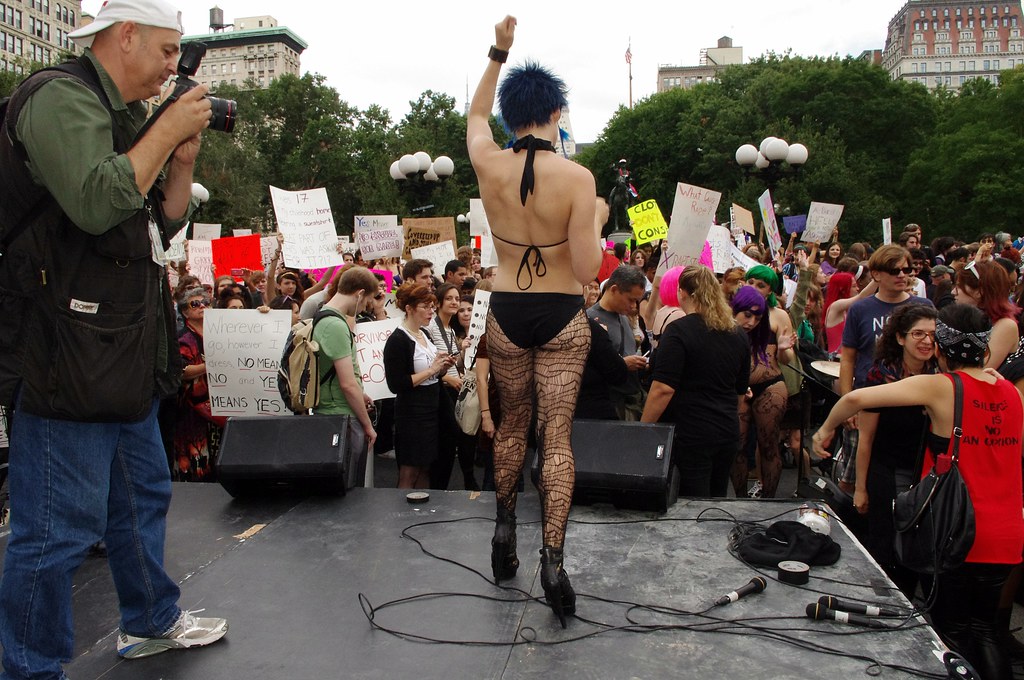A friend has asked for a brief sketch of the history of feminism. Definitely a worthwhile topic.
The original idea of feminism was to get lots of sex. A “liberated woman,” or “women’s liberation,” originally meant women who did lots of casual bedsurfing. This meaning persists in, for example, feminist objections to Arab women wearing the hijab, or to "slut shaming." This, predictably, made ”feminism” really popular among many young men as well as young women. It was the bait that got feminism past the front door. Women were to get jobs outside the home primarily so they could have sex with whomever they pleased, instead of being “kept” by one partner. Free love and all that. Kids were to be dealt with by “the pill.” “The pill” would change everything.
Part of the justification for more sex for everyone came conveniently from the civil rights movement, happening at the same time. The argument was that abstaining from sex outside of marriage involved a “double standard”: it was socially acceptable for men to have lots of sex, but not for women. (It was, at least, at that moment, in the days of the “Playboy philosophy.”) Based on this, women could claim that they were “discriminated against,” just as the blacks were in the US South. Besides, wasn’t keeping the sexes apart “segregation,” just like keeping blacks and whites apart in the South? Wasn’t that what Brown vs. Board of Education was all about? Free love was a human right!
The analogy with the civil rights movement gave feminism a lot of undeserved prestige by association. It made it socially difficult to oppose it, even if one did not really see the similarity between poor Southern blacks and suburban housewives. Given that any different treatment of blacks and whites had been ruled by the US Supreme Court to be discrimination, feminists held that any different treatment of men and women was also proof of discrimination, and proof that women were oppressed. Holding doors open for women was oppression. Calling them “ladies” was oppression. Just as it became heresy to claim that there was any difference between blacks and whites other than their skin colour, it was heresy to claim that there was any difference between men and women other than the shape of their genitals. Men and women are not different: if they were raised and treated the same way, they would think and act the same.
This was patently ridiculous to anyone who has ever lived on a farm, let alone studied biology. But the claim persists, for example, in the annoying use of the term “gender.” “Gender” is properly a grammatical term. Applied to humans, it involves the assertion that any differences between man and women are purely arbitrary and socially constructed, as gender is in grammar.
A lot of men, and probably also a lot of women, failed to resist feminism at this point precisely because (on top of the promise of sex without responsibility) it was so obviously nuts. I remember back in the day asking a professor why on earth everyone was letting the feminists get away with such crazy, obviously false claims. His response was, “it’s a matter of giving them enough rope to hang themselves.” After all, women would pretty soon find out that being treated in the same way as men was not fun. Would they really be happy with unisex washrooms, no laws against rape, no laws requiring child support, no alimony? Would they be happy being drafted in wars to be shot? Did they really want the responsibility of breadwinning? Did they want to yield their seats on the bus? Did they want affirmative action in the prison population?
Surely not.
And, on the other hand, if they did, why on earth not let them have it?
Of course, they did not. By the early eighties, feminism, seeing the impending cliff clearly enough, had actually denied this foundational premise. “Difference feminism” was born. Now, men and women were indeed quite different. It was therefore quite proper to treat them differently--no, it was required. Women were “ladies” again. They had the right to a seat again. They had a right to maternity leave. The workplace had to be modified to suit them. Child support must be retained and reinforced. Instead of dropping laws against rape, we needed stronger laws against rape. We needed special laws against domestic violence, and so on and on. The essential premise now was that women and men were different, but in a specific way: women were, in all ways, better than men. Men are more violent than women; women are more sensible than men; women are more intelligent than men; women are more nurturing then men; men cause wars; men will not ask for help when they need it; and so forth. Equality was no longer any sort of goal: women's interests were the goal. If it seemed to be to women’s benefit, then equality with men was obligatory. If, on the other hand, equality was not to women’s benefit—in prison populations for example, or child custody—then equality was not to be considered.
Why did nobody blow the whistle at this point? Because by this point, feminism had become dominant, and had instituted a reign of “political correctness.” Nobody like my old professor now dared to challenge its assumptions, because to do so might easily mean the loss of a job or a career, or even prison time.
That is not quite where we are now. After some years of this, some brave women, who because they were women and claimed they were themselves "feminists" were relatively safe from persecution or prosecution, eventually came forward to point out that feminism no longer had any rational justification for its claims. Christina Hoff Sommers and Camille Paglia are two names worth mentioning. After some years of their writings, it is becoming less risky to speak out against feminism, and change may at last come.
It has all followed a course typical of totalitarian movements generally. Which is what it was, and is. "The personal is political," as the feminists used to say.
Notice that, in flipping to “difference feminism,” feminism lost the theoretical basis for claiming that there was discrimination against women in the first place. If men and women are indeed different, then the mere fact that they are treated differently, in our or any other culture, does not prove oppression. It may instead be a symbiotic relationship: women get their meal paid for, say; men get to choose the restaurant. Without this claim of sexual sameness, to make out a case for the oppression of women, you need to demonstrate that, when everything is taken together, men do better in life than women. That case has never been made. It is a pretty tough one to make, but on measures of claimed happiness or life expectancy, the two most obvious measures of “life success,” the truth is that women do consistently better than men--in most or all cultures.
Another matter on which feminism has completely reversed itself is the mechanism by which supposed “patriarchy” has come to be. This has always been a fundamental flaw in the feminist case: if men have been able to consistently dominate and oppress women more or less throughout history, in more or less all cultures, how on earth did they pull it off, given that there are always a roughly equal number of men and women? Of course, for feminists, one obvious answer, that this simply demonstrates that men are indeed superior to women, has to be ruled out of court. So what possibilities are left?
The original explanation feminism offered was that it was about “male bonding.” You may remember “male bonding.” Lionel Tiger and others argued that men had a historical advantage because they had learned to work together in groups; they were better organized. This is why feminism tried so hard to bust up any all-male organizations: the service clubs, the military, the priesthood, all-male schools, and so forth. Yet, in defiance of any concept of equality, at the same time, they founded a variety of women-only organizations.
 |
| "Female Muslims: the Tsar took your rights away." Soviet propaganda poster, 1920s. |
But this explanation was rejected by the “difference feminists”: for good reason. In the end, if men and women were identical, it made no sense that men should always and everywhere be able to pull off better organization. Fifty percent of the time, the opposite should have occurred.
At the same time, if men and women are different, the supposed phenomenon of "male bonding" would seem to necessarily mean that men were better at cooperating, at working together, than women. Among other things, that would be an argument for them to retain the executive jobs, wouldn’t it?
This was unacceptable. Just the reverse must be true: according to “difference feminists,” men are too competitive, whereas women are much better at nurturing others and working in groups.
So how the devil, if they did, did men manage to dominate women throughout history? Theoretically, based on the original feminist theory, this greater tendency to cooperate should have meant that women have been dominating men throughout history.
The answer of difference feminism, to the extent that they have an answer, seems to be that men are more violent, aggressive, and greedy than women. Men have beaten women into submission.
Unfortunately, this still makes no sense. Why shouldn't women in their more efficient groups ever or anywhere have been able to restrain these violent men all working more or less alone? It speaks of incompetence, at best.
Such inherent contradictions are why, in the eighties, feminism moved fast to shut down all dissent. You don’t do that if you believe you have the stronger argument. The tone has become more and more shrill as feminists have become more and more aware that their position makes no sense.














